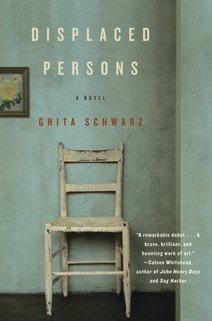
13 Aug 2010 09:05:11
In the novel it is a time of the end the World War II. It is May 1945. In a aconcentration camp where Pavel has been recently liberated to make the way to a British-run relocation center where he befriends a young widow named Fela and a wayward teenage boy named Chaim, who has temporarily landed in trouble for trading on the black markets. Pavel has got a dream to emigrate in America.
After 15 years this dream has become true. Pavel and Fela are married, scraping by on Pavel's earnings as a tailor in the New York City borough of Queens. Chaim, now married to an Israeli girl named Sima, lives nearby.
Narrating these events in crisp, clear prose, Schwarz, like her characters, focuses intently on the day-to-day practicalities of adapting to the big city, a process that ultimately proves easier for the younger couple than for the older one.
This novel is interesting story about people in the time after War.
"Displaced Persons" distills into a single, carefully wrought story line the experiences of an entire courageous generation of Jews who persevered to reclaim their humanity in the face of unspeakable horror. As if continuing the family drama of Holocaust tragedy portrayed so vividly by Julie Orringer in "The Invisible Bridge," Schwarz brilliantly gives us the long view of what postwar survival really meant.
After 15 years this dream has become true. Pavel and Fela are married, scraping by on Pavel's earnings as a tailor in the New York City borough of Queens. Chaim, now married to an Israeli girl named Sima, lives nearby.
Narrating these events in crisp, clear prose, Schwarz, like her characters, focuses intently on the day-to-day practicalities of adapting to the big city, a process that ultimately proves easier for the younger couple than for the older one.
This novel is interesting story about people in the time after War.
"Displaced Persons" distills into a single, carefully wrought story line the experiences of an entire courageous generation of Jews who persevered to reclaim their humanity in the face of unspeakable horror. As if continuing the family drama of Holocaust tragedy portrayed so vividly by Julie Orringer in "The Invisible Bridge," Schwarz brilliantly gives us the long view of what postwar survival really meant.

